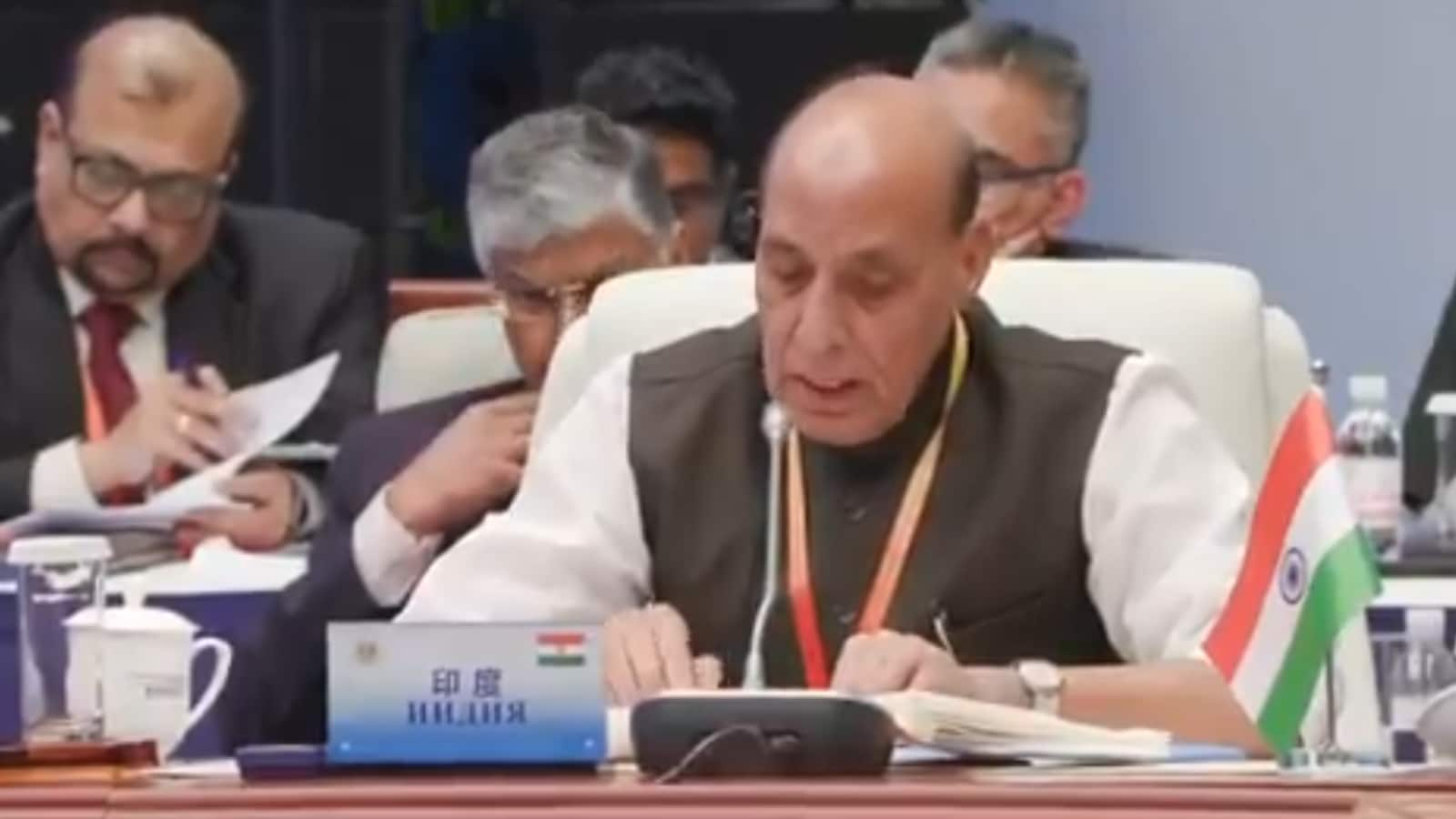In a major geopolitical move, Defence Minister Rajnath Singh’s refusal to sign the Shanghai Cooperation Organisation (SCO) joint statement has exposed deep divisions within the grouping, dealt a blow to China’s leadership credibility, and derailed a coordinated strategic narrative pushed by Beijing and Islamabad.
Singh is currently in China’s Qingdao to attend the SCO Defence Ministers’ meeting. The summit is being attended by member states, including Russia, Pakistan and China, to discuss issues related to regional and international security.
This marks an unprecedented moment in the SCO’s history, with the Defence Ministers’ meeting ending without a joint communique, a highly unusual outcome that signals a serious fracture in consensus. Intelligence sources tell CNN-News18 that India’s dissent was not a procedural objection, but a calculated disruption of what was a China-Pakistan strategic objective to corner India diplomatically.
Why India Refused To Sign The Joint Statement
Rajnath Singh refused to sign the joint statement because it made no mention of the Pahalgam terror attack that claimed 26 innocent lives, and failed to reflect India’s strong position on terror. While skipping any mention of Pahalgam, the document mentioned Balochistan, tacitly accusing India of creating unrest there. Pahalgam’s exclusion from the document appears to have been done at Pakistan’s behest as its all-weather ally, China, currently holds the SCO Chair.
What China And Pakistan Were Planning
According to top intelligence sources, China and Pakistan were attempting to use the SCO as a platform to undermine Operation Sindoor — India’s retaliatory strikes against terror infrastructure in Pakistan following the Pahalgam terror attack. The duo hoped to project Balochistan as a victim of external sabotage and shift global attention away from Pakistan’s role in sponsoring terrorism.
The plan was to reclaim victimhood by showcasing unrest in Balochistan as proof of India’s interference, thereby justifying crackdowns, enforced disappearances, and extrajudicial killings in the region. India’s refusal effectively derailed this narrative offensive, sources said.
Intelligence Dossiers, Satellite Proof Shared
India had in advance shared intelligence dossiers and satellite imagery with SCO members, providing hard evidence of Pakistan’s involvement in cross-border terrorism. These included updates on terror camps in Pakistan-occupied Kashmir and proof of state complicity in sheltering terror groups like Lashkar-e-Taiba and Jaish-e-Mohammed.
Despite this, China, as chair of the summit, attempted to sideline India’s terrorism narrative and position Pakistan as a responsible ally. According to intelligence sources, China has consistently resisted acknowledging India’s right to defend its sovereignty or to call out Pakistan’s terror record, even when presented with hard evidence.
China In Pakistan’s Trap?
The exclusive inputs reveal that China has walked into Pakistan’s double game. With a $62 billion investment in the China-Pakistan Economic Corridor (CPEC) under threat from rising insurgency in Balochistan, China is now deflecting blame and pushing to internationalise Balochistan as a conflict zone, conveniently avoiding any conversation around Uyghur oppression and its own double standards on terrorism.
On the other hand, Pakistan is desperate to avoid scrutiny over its terror infrastructure, especially in the wake of the Pahalgam attack, which drew sharp international attention. Intelligence sources say Islamabad wants to divert the global spotlight from its deepening terror links and India’s Operation Sindoor, using SCO as a stage for a diplomatic cover-up.
Strategic Disruption, Not Procedural Dissent
India’s refusal to sign the joint statement wasn’t just procedural dissent, it was a strategic disruption, as per sources. The move ensured that Pakistan and China’s joint narrative did not go unchallenged or get legitimised by consensus.
With this, Defence Minister Rajnath Singh has not only stalled a dangerous China-Pakistan diplomatic gambit, but also reinforced India’s uncompromising position on terrorism, sovereignty, and regional integrity.
The SCO’s credibility has taken a hit. Its image as a consensus-driven body has been tarnished, and for the first time, its joint voice has been disrupted — a strong signal that India will not tolerate whitewashing of terrorism, even at multilateral forums.
